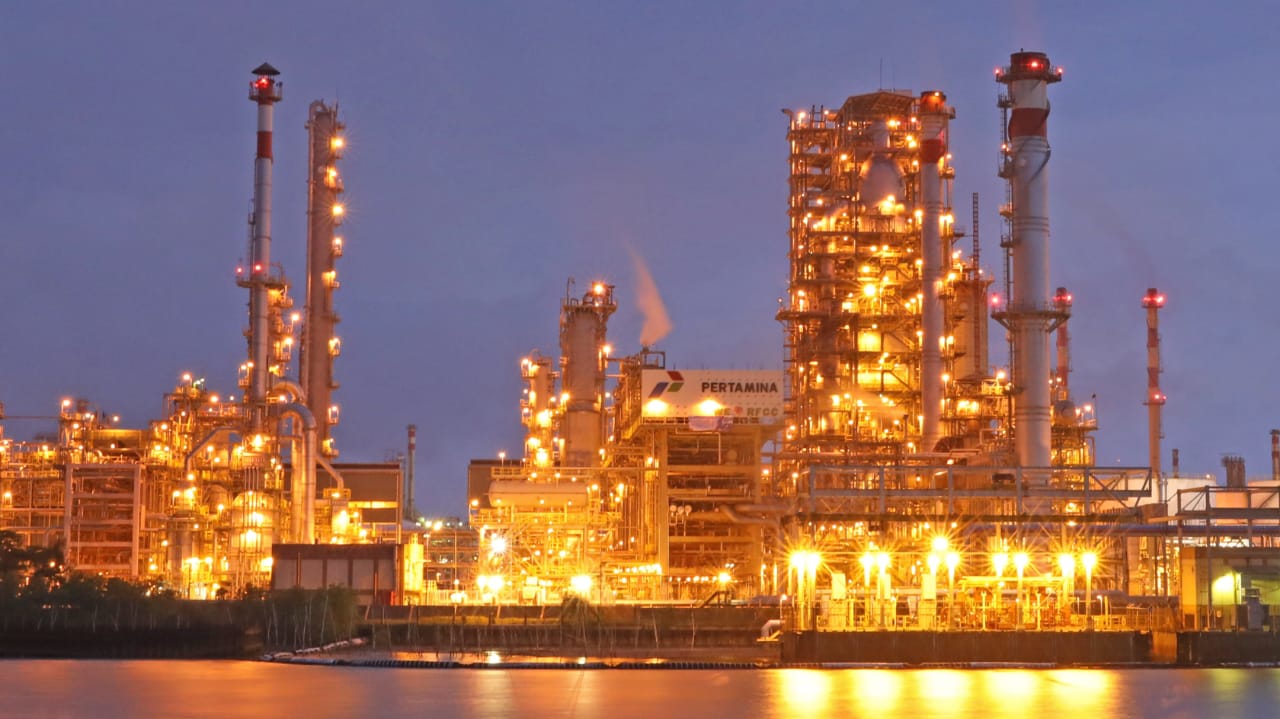
Pertamina Optimizes Investment for National Energy Management
Jakarta, June 16, 2021 - PT Pertamina (Persero)'s efforts to carry out its role to manage national energy continue to be optimized through the right investment strategy in all of the company's business lines.
In the upstream sector, the government has trusted Pertamina to take over 11 termination Oil and Gas Working Areas previously managed by other operators since 2017. In August 2021, when the Rokan Block is officially managed through Pertamina Hulu Rokan, the contribution of the Pertamina Group to national oil and gas production will increase significantly.
Of the 2020 investment realization of USD 4.7 billion, the upstream sector received the highest portion of USD 2.41 billion or 51 percent. To maintain business growth and sustainability in 2021, Pertamina has budgeted a Capital Expenditure (Capex) of US$ 10.7 billion.
"This step is an effort by the company to maintain national energy sovereignty by increasing oil and gas production and supporting the government to achieve 1 million barrels of production," said Fajriyah Usman, Acting Senior VP Corporate Communications & Investor Relations of Pertamina.
In the processing sector, said Fajriyah, Pertamina's investment budget is also intended to build processing infrastructure for 4 Refinery Development Master Plan (RDMP) and 1 Grass Root Refinery (GRR), which will be integrated with the Petrochemical refinery. As a continuation of the Biodiesel program implementation running since 2006, Pertamina is also committed to developing 100% Biofuel or Biodiesel. It is accomplished by accelerating the completion of three biorefinery projects in three locations, namely the Cilacap, Dumai, and Plaju refineries, to meet the demand for Biodiesel by processing energy sources from palm oil, which are abundant in Indonesia.
"Through investment in refinery development, Indonesia can achieve self-sufficiency or energy independence which we needed in the future," she said.
According to Fajriyah, Pertamina also develops fuel, LPG, and gas distribution infrastructure in the downstream sector. Currently, Pertamina is completing 14 Fuel Terminal locations and 4 LPG Terminal locations in Eastern Indonesia. To encourage energy conversion efforts for PLN's power plants, Pertamina is also building LNG infrastructure at 56 points.
"Anticipating the energy transition era, Pertamina continues to develop PLTP, PLTS, or PLTGU for national energy security," he added.
The investment budget for all these projects is sourced from the company's internal equity and external financings, such as loans, global bonds, or project financing.
Of the total projects, namely 14 National Strategic Projects and 300 other investment projects in the upstream, downstream, and renewable clean energy sectors, Pertamina requires around US$ 92 billion during 2020-2024.
"Through this project and the productive use of funds, Pertamina can increase the company's revenue which is gradually used to repay loans," said Fajriyah Usman, Senior Vice President of Corporate Communications & Investor Relations after Pertamina's General Meeting of Shareholders (GMS).
To manage loans, continued Fajriyah, Pertamina has implemented several strategies, including discipline in establishing sinking funds, buyback global bonds/liability management, cash management, accelerating receivables collection between companies, and monitoring investment returns discipline.
With this strategy, the company realized the ability to pay bonds maturing in 2021 of USD 391 million. Previously in 2020, Pertamina had also paid off three corporate loans totaling USD 549.4 million.
In 2020, Pertamina also is successful in recording a debt ratio that was well maintained and still competitive among other national and international oil and gas companies. Three international rating agencies, namely Moody's, S&P, and Fitch, assigned Pertamina an investment grade rating of Baa2, BBB, and BBB, respectively.
"We are making efforts to maintain the debt ratio within reasonable control as a healthy company. "We continue to maintain Debt to EBITDA, and KBUMN as Shareholders monitor all financial areas," added Fajriyah.